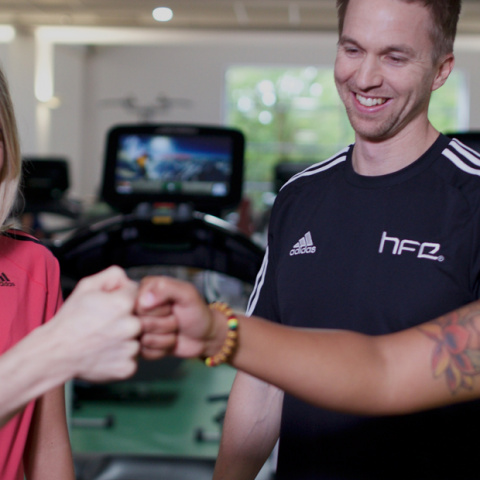Participating in cardiovascular fitness activities in your 20s may help to protect your brain in middle age, according to a new US study. The research, published in Neurology, the medical journal of the American Academy of Neurology, found activities that maintain cardio fitness led to better memory and thinking skills 20 years on. Scientists say the research adds to existing evidence that shows a correlation between good heart health and brain benefits.
Commenting on the study, author Dr David Jacobs, from the University of Minnesota, said: “Many studies show the benefits to the brain of good heart health. This is one more important study that should remind young adults of the brain health benefits of cardio fitness activities such as running, swimming, biking or cardio fitness classes.” Cardio fitness is a measure of how well the body transports oxygen to the muscles, and how well the muscles are able to absorb the oxygen during exercise.
Researchers at the University of Minnesota tested 2,747 healthy people with an average age of 25. Participants underwent treadmill tests of cardiovascular fitness during the first year of the study and again 20 years later. Cognitive tests taken 25 years after the start of the study measured verbal memory, psychometer speed (the relationship between thinking skills and physical movement) and executive function.
For the treadmill test, participants walked or ran, as speed and incline increased, until they became exhausted or short of breath. Researchers found people who ran for longer on the treadmill at the first stage went onto perform better at tests of memory and thinking skills 25 years on – even after adjusting for factors such as smoking, diabetes and high cholesterol.
At the first test, participants lasted an average of 10 minutes on the treadmill. 20 years later, that number had decreased by an average of 2.9 minutes. For every additional minute people completed on the treadmill at the first stage, they were able to recall 0.12 more words correctly on the memory test of 15 words. They were also able to correctly replace 0.92 more numbers with meaningless symbols in the test of psychometer speed 25 years later.
A growing body of evidence suggests exercise may reduce the risk of cognitive decline and dementia, and much research has shown a link between healthy habits in midlife and better health in old age
People who had smaller time differences in their treadmill test 20 years on were more likely to perform better on the executive function test than those who had bigger differences.
“These changes were significant, and while they may be modest, they were larger than the effect from one year of ageing,” said Dr Jacobs. “Other studies in older adults have shown that these tests are among the strongest predictors of developing dementia in the future. One study showed that every additional word remembered on the memory test was associated with an 18% decrease in the risk of developing dementia after 10 years.”
Dr Simon Ridley, head of research at Alzheimer’s Research UK, said: “A growing body of evidence suggests exercise may reduce the risk of cognitive decline and dementia, and much research has shown a link between healthy habits in midlife and better health in old age. Investment in research is vital to better understand how we can protect our brains as we age.”


